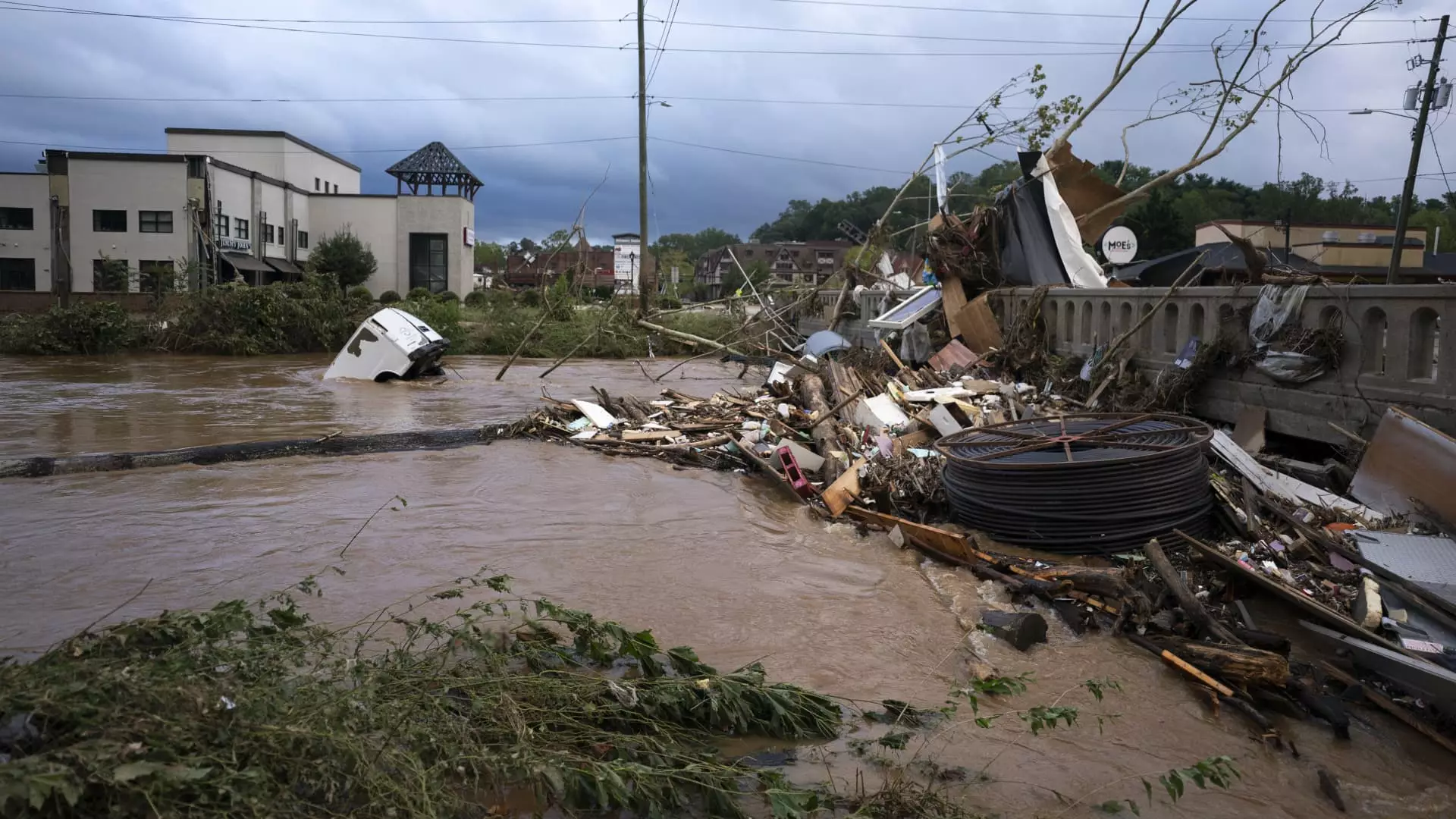Natural disasters often bring out the best and worst in humanity. When communities are battered by storms like Hurricane Helene, it is not only the wind and rain that pose a threat to residents; unfortunately, the aftermath can foster a breeding ground for scammers looking to exploit vulnerable people. In recent reports, multiple states have raised alarms about potential scams emerging in the wake of the hurricane, with a specific focus on the issue of price gouging.
Price gouging is defined as an unreasonable increase in the prices of essential goods and services, particularly during a state of emergency. In the context of Hurricane Helene, states like North Carolina have been inundated with complaints regarding marked-up prices for everyday necessities such as fuel, groceries, and lodging. North Carolina Attorney General Josh Stein revealed that his office had already received over 100 price gouging complaints within a week of the storm’s impact. This situation raises concerns about the actions of a minority of retailers who might prioritize profit over community welfare during desperate times.
Stein’s remarks highlight the concerning hypocrisy: while many businesses are striving to support their communities, a handful of others exploit the chaos for quick profits. Unfortunately, reports of price increases—from $5 to $10 for bottled water or from $100 to $500 for essential tools—illustrate how some businesses are taking advantage of a population in distress. Individuals affected by such price increases should be aware that anti-price gouging laws are intended to protect them, but awareness and vigilance are crucial for enforcement.
Legislation against price gouging exists in 37 states, signifying a widespread recognition of the need to protect consumers during emergencies. Nonetheless, the enforcement of these laws can be inconsistent, and states that lack such regulations present a particular vulnerability. Efforts to introduce a national ban on price gouging have been highlighted by figures such as Vice President Kamala Harris, but resistance from various quarters suggests that establishing a comprehensive legal framework may be a challenging endeavor. Critics argue that such laws could inadvertently disrupt usual supply chains and have unintended consequences.
Advisories from attorneys general across several states—including Florida, Georgia, and South Carolina—noticeably emphasize the importance of awareness, normal price fluctuations distinguished from genuine gouging, and consumer empowerment. Citizens are encouraged to document any suspicious pricing and report it to the appropriate authorities, demonstrating that active consumer engagement can serve as a deterrent against unscrupulous practices.
The risk of price gouging is merely one of several dangers residents face in the aftermath of a disaster. Alongside financial exploitation, various other scams tend to arise after hurricanes. For instance, impostors posing as representatives from FEMA or insurance companies are reported frequently, preying on those unfamiliar with recovery processes. Georgia Attorney General Chris Carr underscores the importance of heightened vigilance and advises against disclosing personal or financial details to unverified individuals. Remember, the services provided by organizations like FEMA should never incur costs for consumers; a request for payment is often a red flag.
In addition to these identity fraud cases, property repair scams flourish in post-storm environments. Residents are cautioned to be cautious about door-to-door solicitations for home repairs or offers that require full upfront payments. Consulting with insurance providers before any work commences is crucial, as is vetting contractors by seeking out references and checking for any complaints against them on platforms like the Better Business Bureau.
Beyond home repairs, individuals looking to replace vehicles in the wake of storm damage should be diligent when assessing potential purchases. Flood-damaged cars often make their way to the used car market post-hurricanes and could be sold without full disclosure. Services like the National Insurance Crime Bureau’s VINCheck offer essential tools for prospective buyers to verify vehicle histories, allowing them to avoid purchasing problematic vehicles.
Finally, as true philanthropy flourishes during trying times, so too do charity scams that seek to mislead well-meaning donors. State attorneys general advise potential donors to utilize resources like Give.org and CharityNavigator.org to ensure their contributions reach legitimate organizations.
The aftermath of Hurricane Helene highlights the need for vigilance against a spectrum of scams. By being proactive, staying informed, and reporting suspicious activities, residents can protect themselves and contribute to rebuilding their communities more resiliently.

